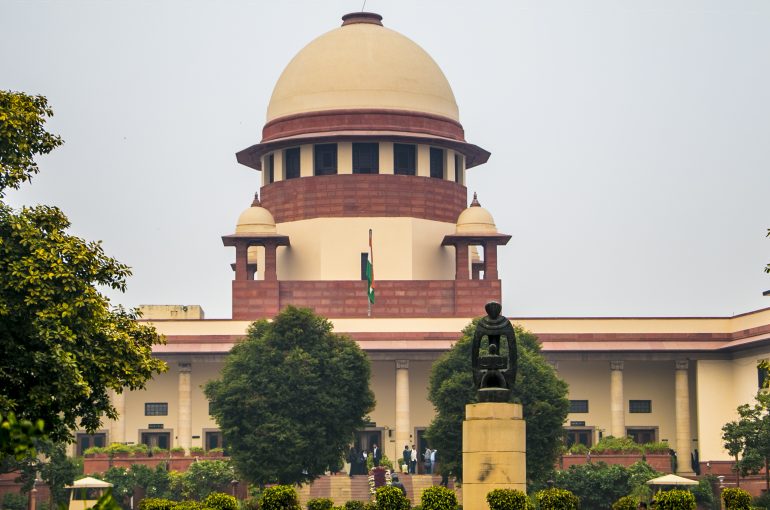SUPREME COURT SETTLES THE LAW: HIGH COURTS CAN QUASH DV COMPLAINTS UNDER SECTION 12 USING INHERENT POWERS UNDER CRPC / BNSS

In a landmark Judgment delivered on May 19, 2025, the Hon’ble Supreme Court held that High Courts are empowered to quash proceedings initiated under Section 12(1) of the Protection of Women from Domestic Violence Act, 2005 (DV Act) by exercising their inherent powers under Section 482 of the Code of Criminal Procedure, 1973, now codified as Section 528 of the Bharatiya Nagarik Suraksha Sanhita, 2023 (BNSS).
The Judgement rendered in Shaurabh Kumar Tripathi v. Vidhi Rawa (Cr. Appeal No. 2688/2025)(Date of Judgment- 19.05.2025) by a Bench comprising of Justice Ujjal Bhuyan and Justice Abhay S. Oka brings finality to a prolonged judicial battle over the maintainability of quashing petitions in domestic violence cases and offers conclusive precision on the extent of High Court’s involvement in such proceedings.
JUDICIAL BACKGROUND: DIVERGENT VIEWS ON QUASHING DV COMPLAINTS
For several years, conflicting High Court judgments had created uncertainty regarding the applicability of Section 482 Cr.P.C to complaints under Section 12 of the DV Act. The divergence stemmed from the notion that proceedings under the DV Act are predominantly civil in nature, despite being adjudicated before Magistrates functioning under the criminal court framework. Many courts held that such proceedings could not be quashed using the Cr.P.C’s inherent powers.
The Supreme Court has now authoritatively clarified that this restrictive interpretation is legally untenable, reaffirming that High Courts retain the inherent jurisdiction to quash such proceedings where circumstances warrant intervention.
KEY TAKEAWAYS FROM THE JUDGMENT
- Inherent Power under CrPC/BNSS is Applicable
Rejecting the impugned view of the High Court, the Hon’ble Supreme Court affirmed that petitions under Section 482 CrPC are indeed maintainable against proceedings under Section 12(1) of the DV Act. The Court confirmed that the inherent powers under Section 482 CrPC (now Section 528 BNSS) can be invoked to quash domestic violence proceedings, thereby enabling courts to prevent abuse of process and to secure the ends of justice.
- Civil Nature of DV Proceedings Not a Bar to Quashing
While recognizing that applications under Section 12(1) of the DV Act are predominantly civil, the Court held that such classification does not preclude the exercise of inherent jurisdiction. The decisions are primarily based on the premise that proceedings under Section 12(1) are predominantly civil but the said view is not correct.
- Judicial Restraint Is Paramount
The Bench emphasized that while the High Court does possess the power to quash DV complaints, such power should be exercised sparingly and with due caution, particularly given the welfare-oriented purpose of the DV Act. Judicial interference under Section 482 is typically reserved for situations marked by egregious illegality or substantial unfairness
- High Courts Should Adopt a Cautious ‘Hands-Off’ Approach
If High Courts do not exercise restraint, the fundamental purpose behind the enactment of the DV Act stands to be undermined. The Court advised High Courts to refrain from routine interference in DV matters, preserving the protective intent of the legislation.
JUDICIAL INTROSPECTION AND CORRECTION OF PRECEDENTS
Notably, Justice Oka candidly reflected on a 2016 Judgment he authored as a Judge of the Bombay High Court, wherein he had held that Section 482 CrPC was not applicable to DV Act proceedings. He acknowledged that this view was subsequently overruled by a Full Bench of the same court and stated that they are duty-bound to correct their mistakes in properly considered proceedings. Even for judges, the learning process always continues.
This moment of judicial reflection reinforces the evolving nature of legal interpretation and adds credibility to the court’s ruling.
IMPLICATIONS OF THE JUDGMENT
- Uniform Precedent Across India
This decision ends the ambiguity created by conflicting High Court judgments and establishes a binding precedent on the maintainability of Section 482/528 petitions in DV matters.
- Legal Recourse Against Frivolous Complaints
The ruling empowers litigants to seek redress against vexatious or abusive complaints under the DV Act, ensuring that the law is not misused.
- Preservation of Legislative Intent
In urging restraint in the exercise of quashing powers, the Court reinforces the fundamental purpose of the DV Act—to ensure prompt and effective relief for victims of domestic violence
- Harmonization of Civil and Criminal Procedure
The Judgment acknowledges that rigid procedural labels (civil vs. criminal) must yield to the substantive cause of justice, particularly in hybrid proceedings like those under the DV Act.
CONCLUSION
The Supreme Court’s ruling in this case marks a significant jurisprudential clarification on the interplay between procedural law and protective legislation. It affirms the inherent power of High Courts to intervene in appropriate cases under the DV Act, while simultaneously protecting the integrity of the law’s welfare objectives.
By striking a delicate balance between judicial oversight and legislative intent, the judgment will undoubtedly influence how domestic violence litigation is conducted in India, both at the trial and appellate levels.
SARTHAK KALRA
Senior Legal Associate
The Indian Lawyer & Allied Services
Please log on to our YouTube channel, The Indian Lawyer Legal Tips, to learn about various aspects of the law. Our latest video, titled- “Surrogacy Laws in India Explained | Who Can Be a Surrogate? | Advocate Sushila Ram Varma” can be viewed at the link below:
https://www.youtube.com/watch?v=EvFtWfxlp1k&t=6s





































Leave a Reply